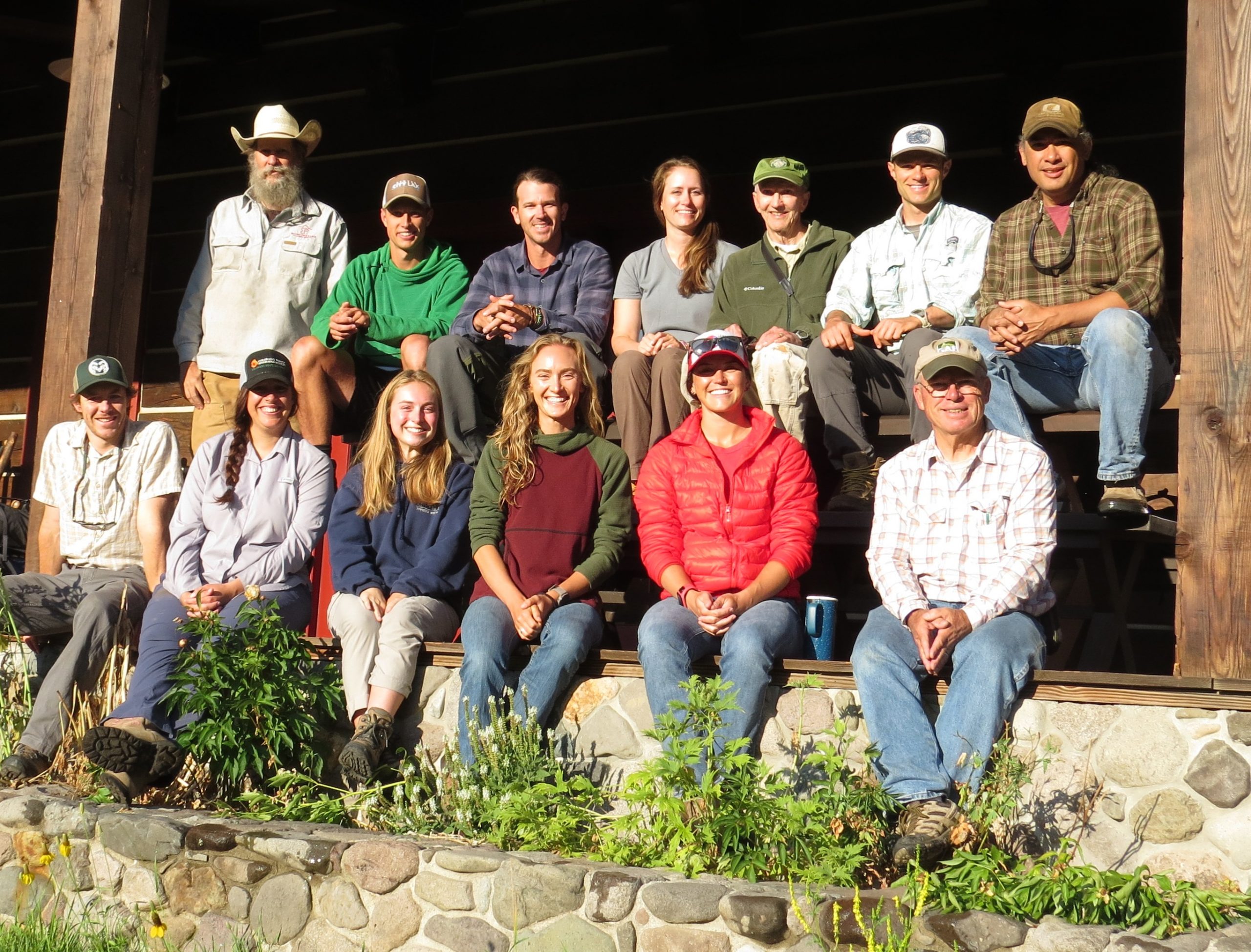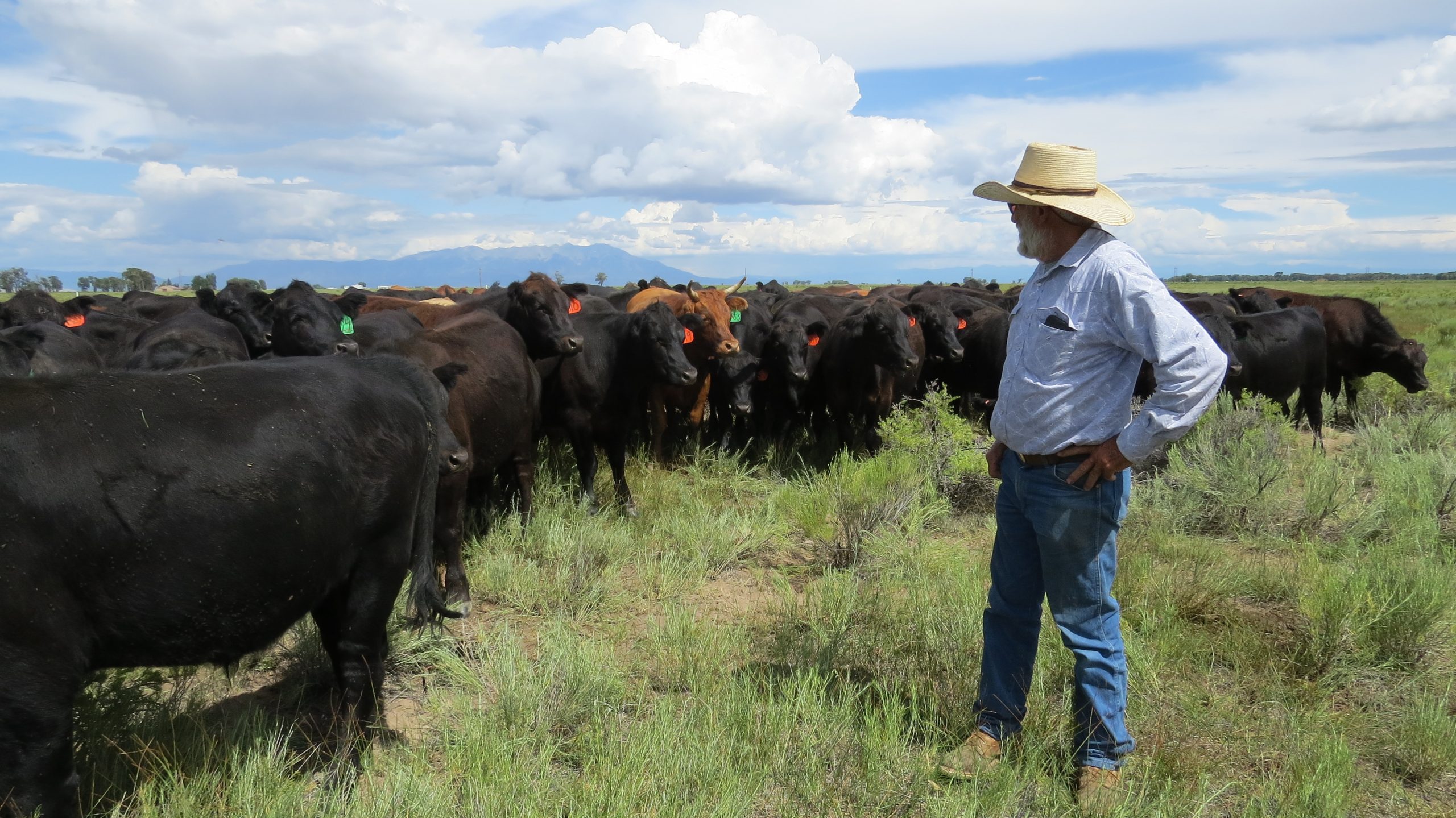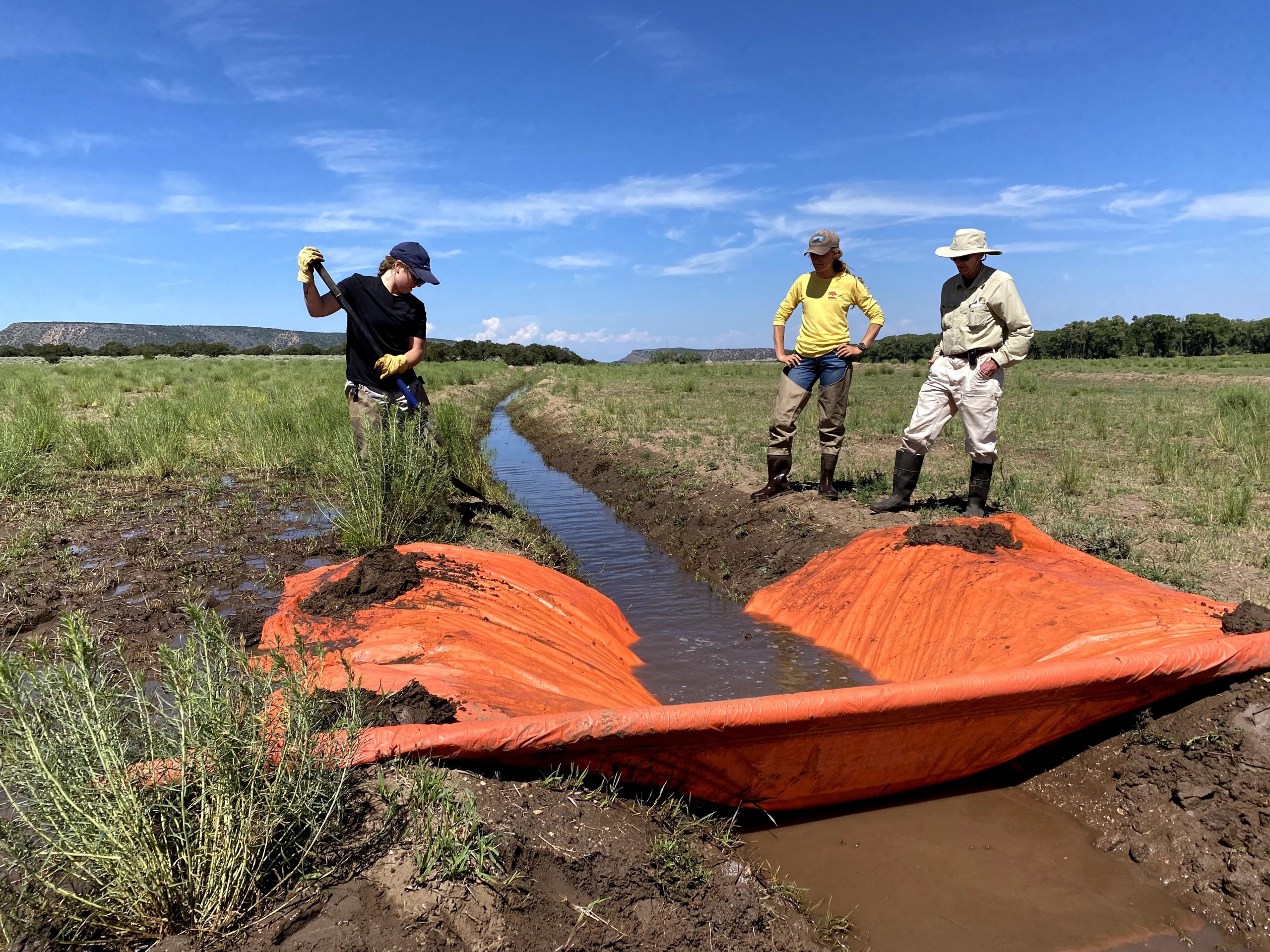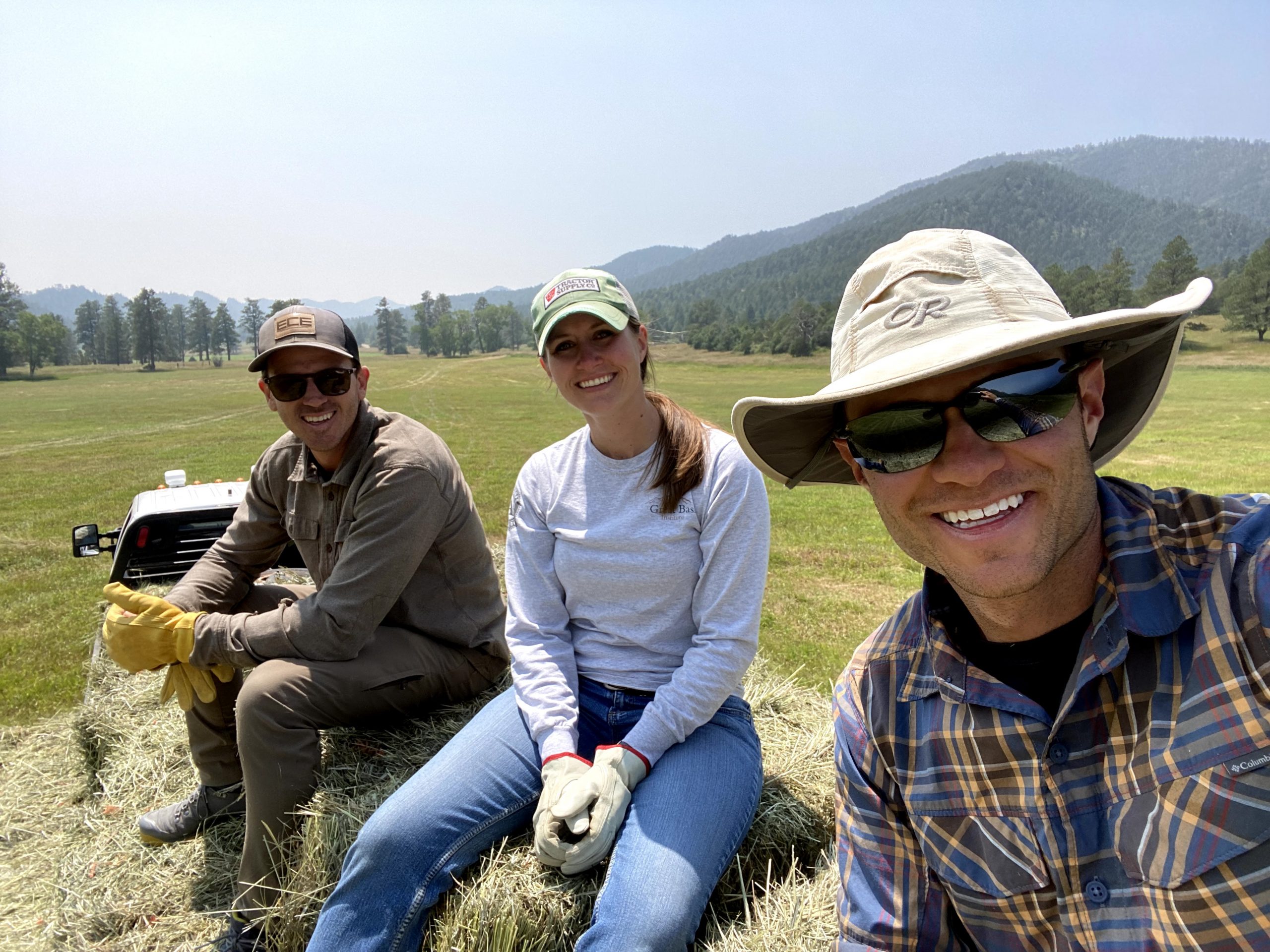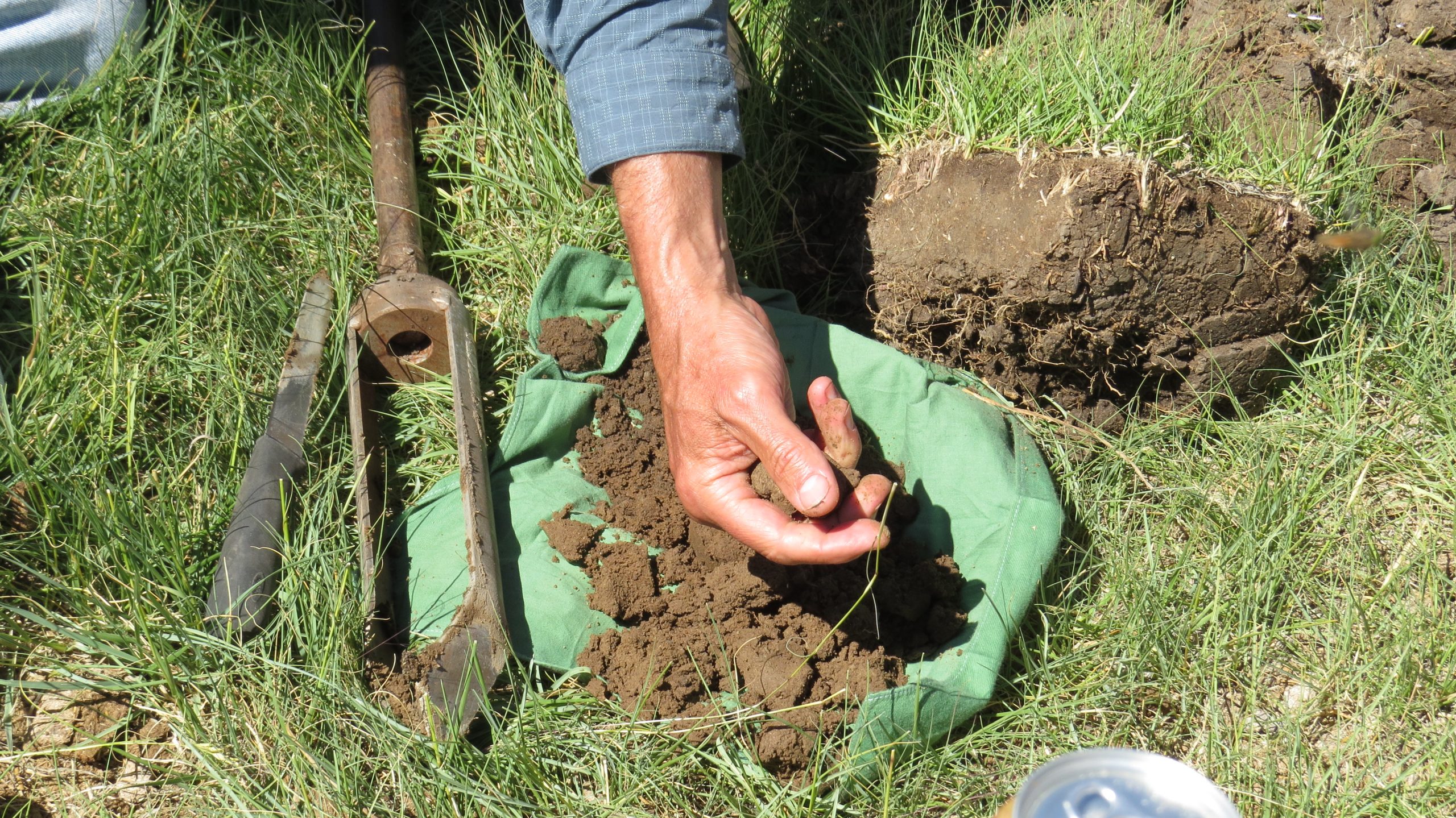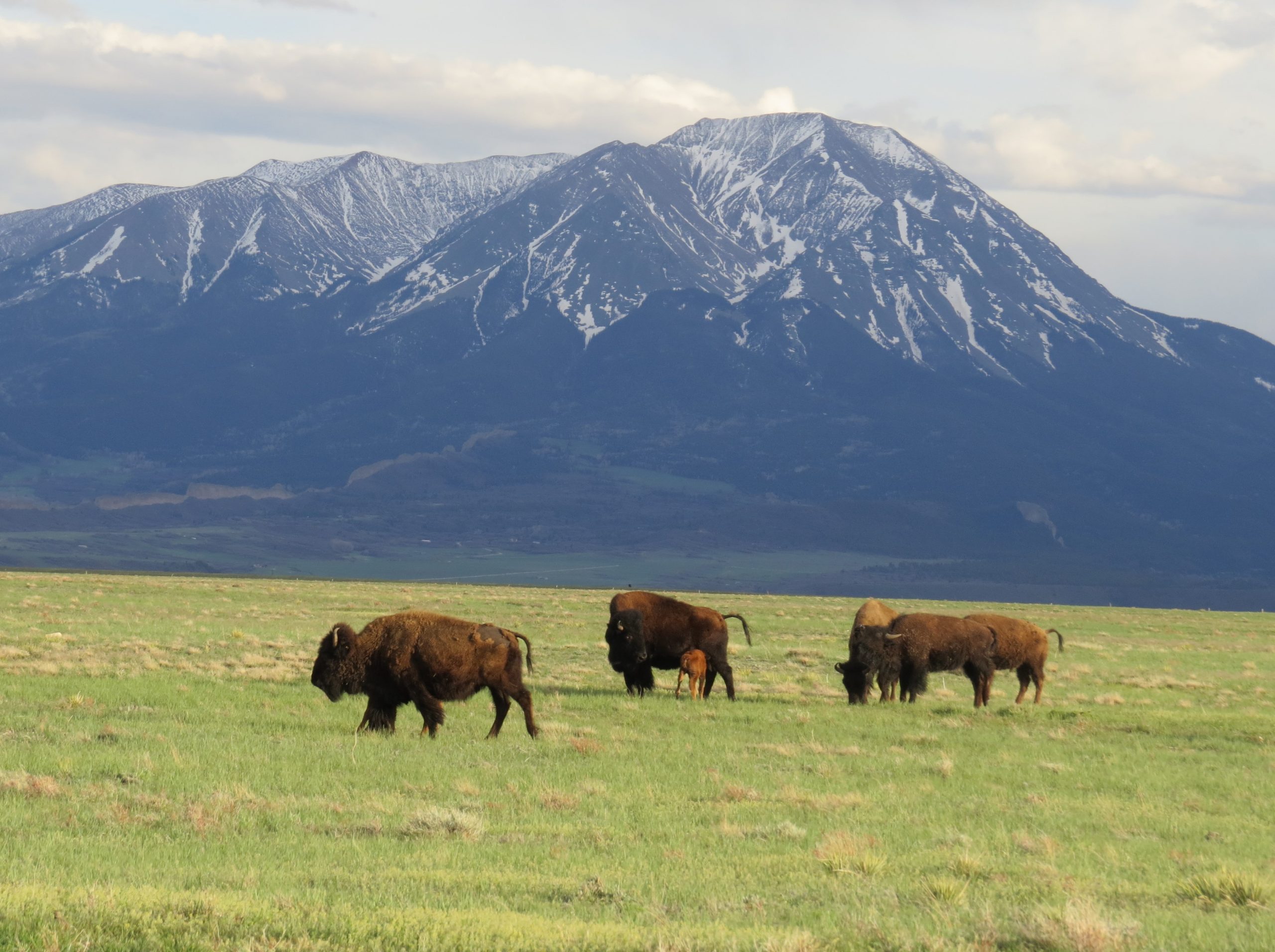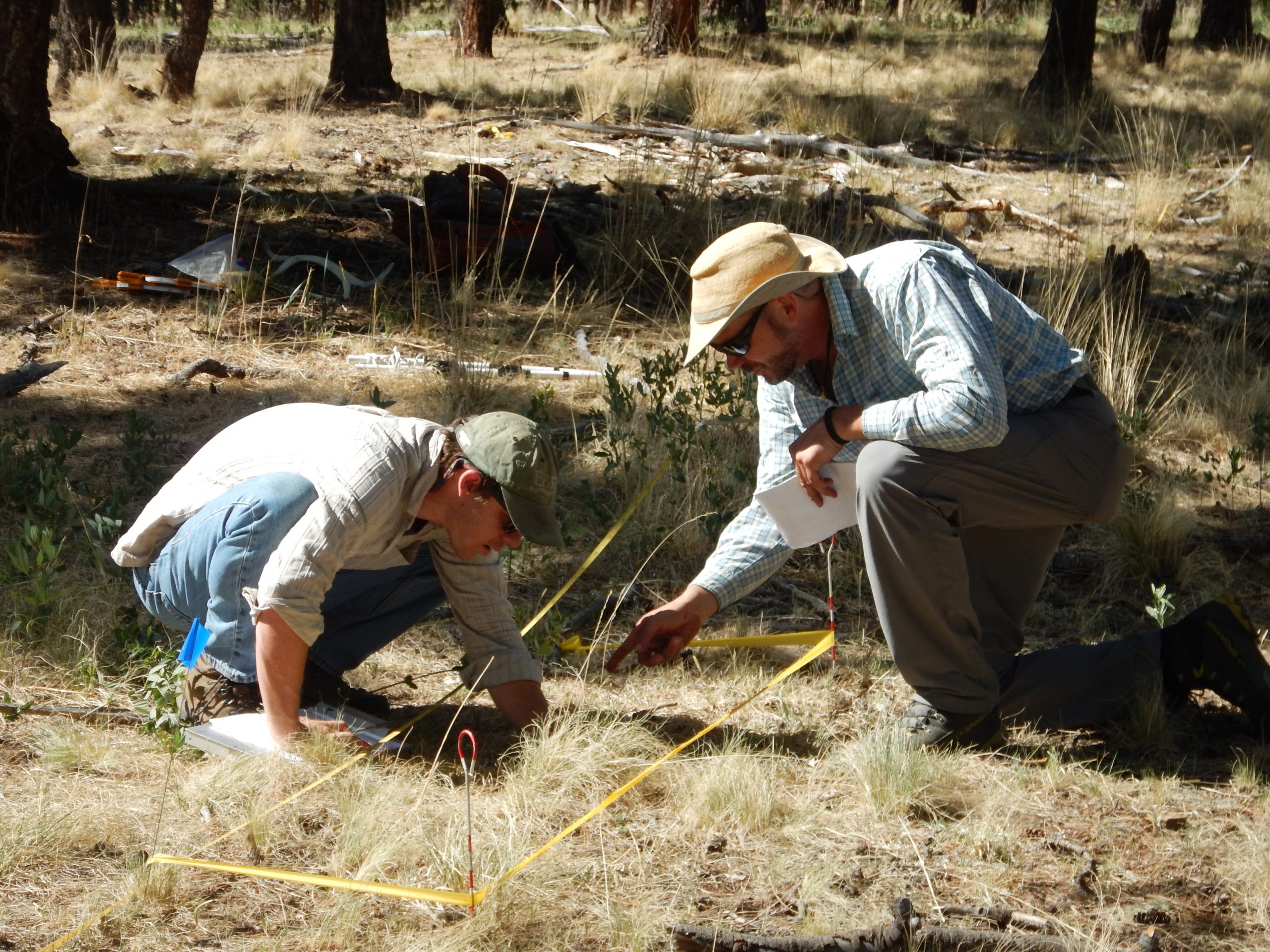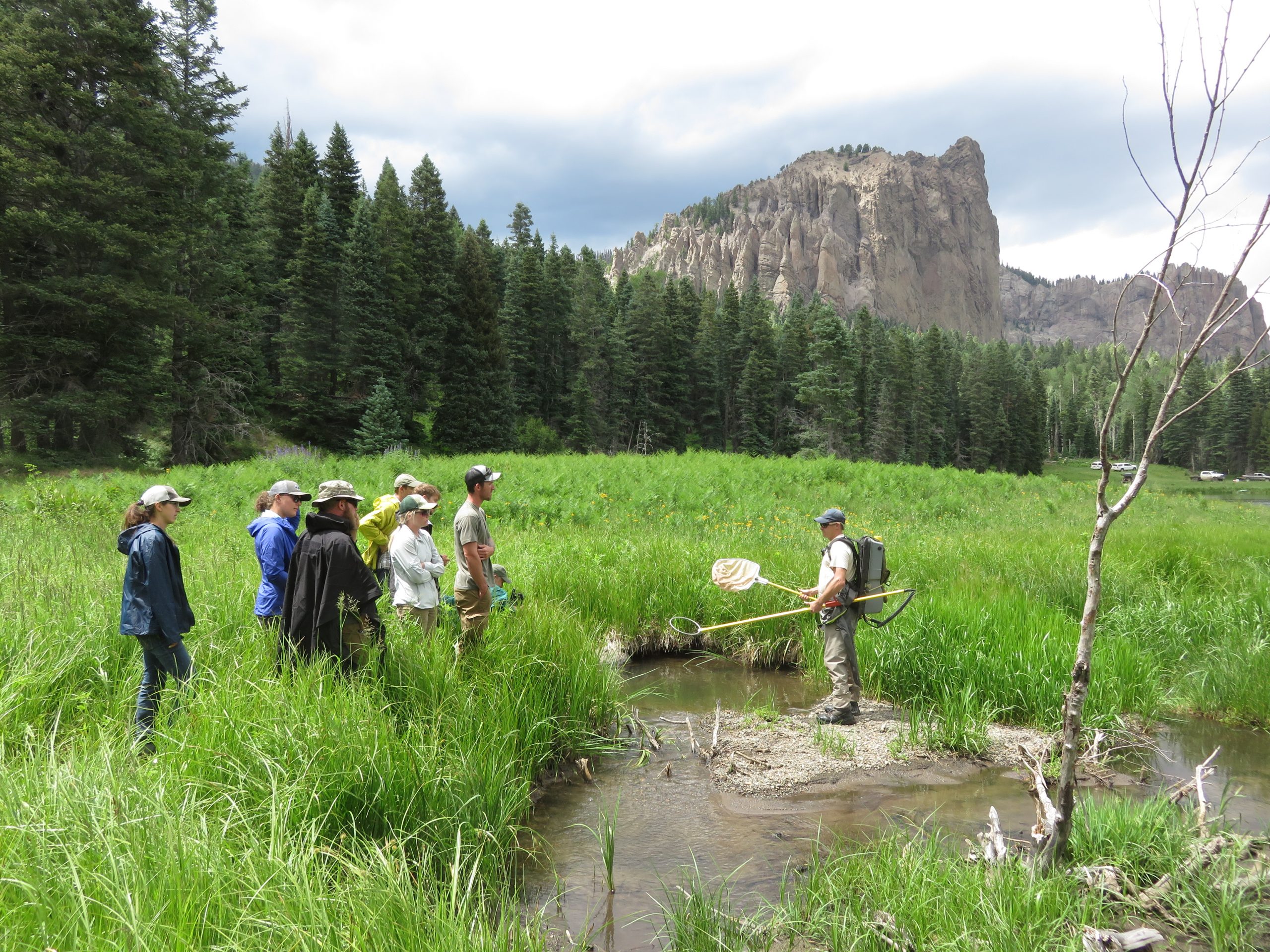Master of Natural Resources Stewardship, Western Ranch Management and Ecosystem Stewardship Specialization
The Master of Natural Resources Stewardship (MNRS) Western Ranch Management and Ecosystem Stewardship specialization prepares students to work on and manage ranches in the Rocky Mountain West. The topics that 21st century ranch owners and managers need to master and utilize are diverse, ranging from holistic livestock grazing to wildland fire mitigation, watershed protection, forest management, guest services, endangered species restoration, regenerative agriculture, carbon credits, and more. Hands-on training grounded in science, innovative ideas, and the experience of ranchers is needed to prepare students for this challenging and impactful profession. Anchored in experiential learning and engagement with the ranching community, the program offers extensive opportunities to interact with ranch managers and owners and natural resource managers as part of the program’s curricula.
From the start, students learn the fundamental principles of forest and rangeland ecosystems, the roles that plants and wildlife play in these systems, and the natural processes that support water and soil nutrient cycling in the Rocky Mountain West. Students also learn about the operational side of ranching, including business and accounting, human resources, equipment, and policies that influence day-to-day activities. Throughout the program, students are exposed to innovative and often novel management strategies that are increasingly being integrated into ranching. The specialization emphasizes understanding of the social and economic contexts surrounding ranching and the ecological interactions, feedbacks, and complexities. Through the courses offered, students visit and work with a variety of working ranches seeing first-hand how operations are tailored to support ecosystem processes, foster lasting protection of the land, and achieve economic profitability.
Curriculum
The MNRS degree is a coursework-intensive, professional masters degree for students with some prior natural resource or agriculture experience. The curriculum for the Western Ranch Management and Ecosystem Stewardship MNRS specialization can be found here . Students complete core courses and select electives that fit their interests and fill gaps in their background. These electives can be drawn from across the breadth of courses and fields taught at CSU. More information about the MNRS program, including how to apply, can be found here.
We have developed four courses specific to the Western Ranch Management and Ecosystem Stewardship specialization. These courses, together with other core classes and electives specific to each student, make up the program’s curriculum. We highly recommend that students take “NR 536: Ranch Management and Stewardship Field Course” at the beginning of the program. This course immerses students in the field of ranch management, providing context and motivation for subsequent courses. It also is a chance to form a community with other students and instructors in the program. These four classes specific to the WRMES specialization are:
NR 536: Ranch Management and Stewardship Field Course
This summer field course is offered from the end of July to mid-August each summer. The course consists of two 10-day field sessions hosted at eight ranches in southern Colorado and northern New Mexico. The ranches represent a variety of ranch types and ecosystems that characterize the Rocky Mountains, spanning production to conservation ranches and arid to alpine ecosystems. The course draws on multiple disciplines, including agriculture, animal sciences, business, ecology, forestry, rangeland management, watershed sciences, and wildlife conservation. Field visits to each ranch highlight the unique opportunities and challenges in modern ranch management and land stewardship.
In this field course, students are introduced to:
The course is designed to introduce students to the variety of ways in which ranches address similar challenges. Students may not become experts in all covered topics, but they are exposed to established practices and emerging ideas to build a toolbox of techniques and programs that will help them have successful careers working with Western ranches. By the end of the course, students understand the range of career paths available in ranch management.
- The social, economic, and environmental components of ranch management, including different business models and human resource management approaches as well as the socioeconomic contexts of ranching
- Different grazing strategies developed for cattle and bison, and see how grazing plans are designed to help protect biodiversity, enhance soils and conserve water resources
- Ecology of Western forests and see how they are managed for timber, wildlife habitat, fire risk and carbon sequestration
- Collaborative partnerships with state and federal wildlife agencies to re-establish and protect threatened and endangered wildlife, such as bighorn sheep and the Rio Grande cutthroat trout
- Riparian habitat restoration projects designed to protect critical headwaters and understand how water rights influence land use decisions
- Long-term conservation planning through easements, carbon cap-and-trade, and other programs and incentives
- Methods on vegetation sampling techniques used for monitoring response to management treatments and natural processes, such as grazing and fire
- Basic elements of hunting programs and game management strategies, agricultural practices to conserve water, alternative energy development and mineral rights, ecotourism and guest services, ranch financial operations, and more
Contact Tony Vorster (anthony.vorster@colostate.edu) if you are interested in enrolling.
More information about enrolling as a non-degree seeking student can be found here.
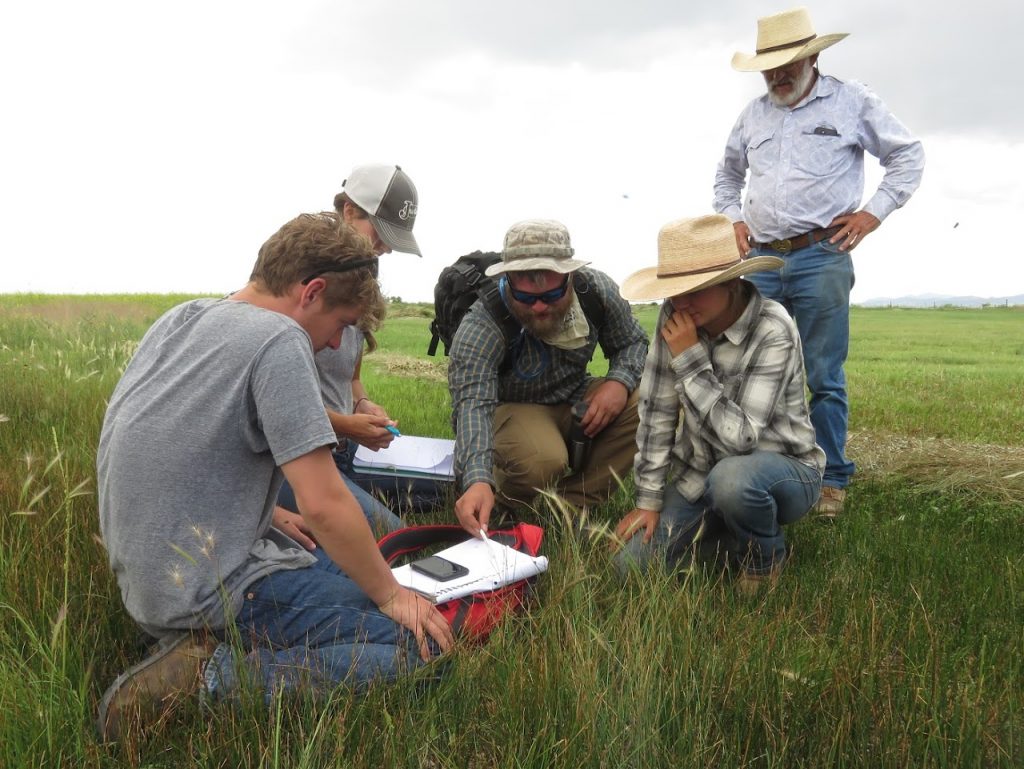
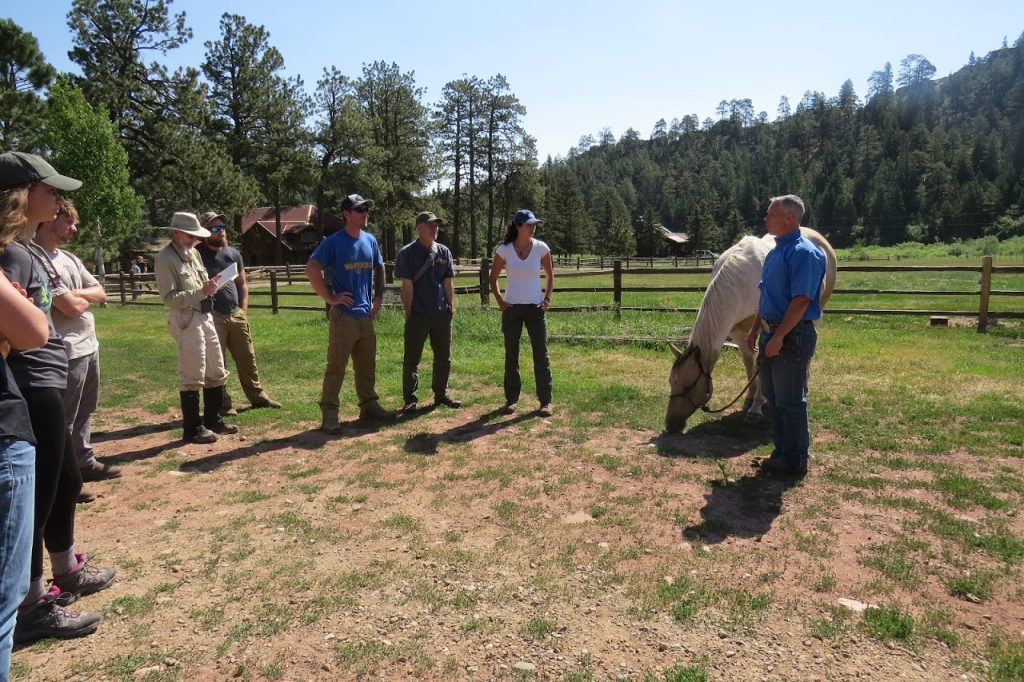
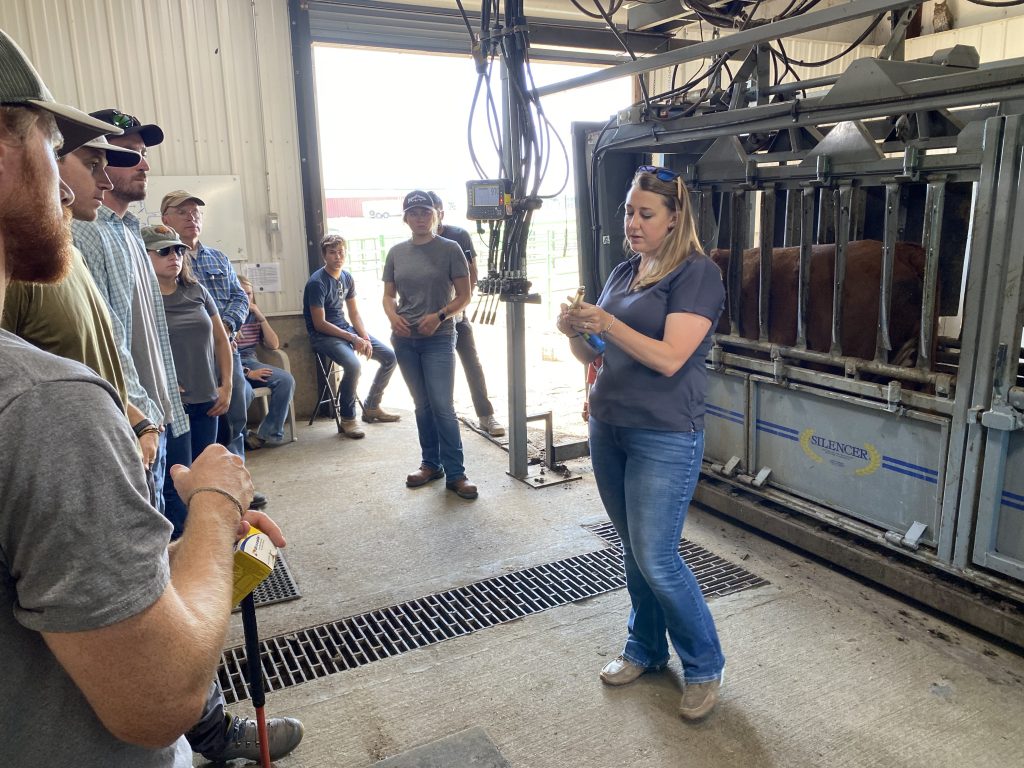
NR 537: Ranch Management and Stewardship Seminar
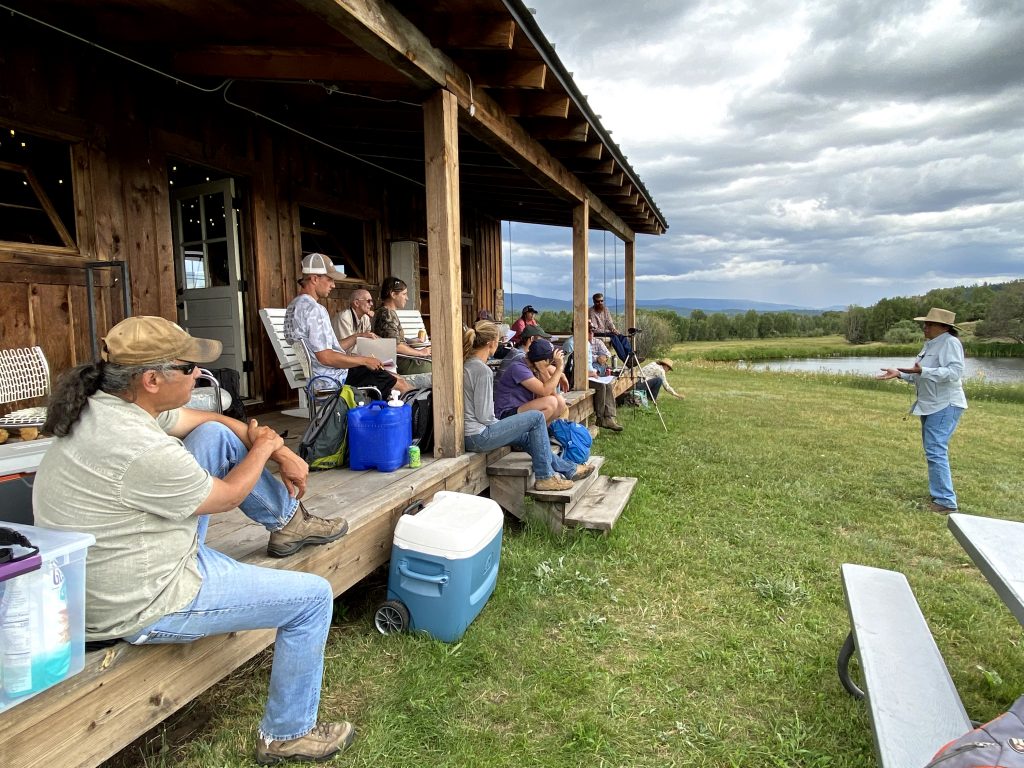
This seminar series draws upon the experiences of practitioners and experts to expose students to various management approaches and perspectives. Ranch managers need an expansive toolkit and network to draw upon, and this course offers opportunities for students to learn new management approaches and to make connections with experienced practitioners. This course is offered in the fall semester.
Students read about each topic in preparation for each seminar and engage with speakers in rich discussion. Topics in fall 2022 included: drought adaptation, collaborative conservation, grazing management, low stress animal handling, predator management, human resources, regulatory considerations, and ecosystem service markets. These are some example seminar topics, which may change over time.
NR 538: Skills in Ranch Management
This course gives students an opportunity to practice a variety of skills needed to be effective ranch managers. These skills are best learned by doing, and this course gives students an opportunity to practice these skills. Experience with these skills will provide necessary qualifications when applying to jobs and confidence on the job. This course is offered during fall semesters, and class is held both on campus and on ranches and other facilities in the area.
Examples of skills taught include: livestock handling and care (with the Beef Quality Assurance program); fencing; improving water systems; heavy equipment and ATV training; proposal writing; attending the Regenerate conference; ranch finances; applications and technologies; and buying and selling livestock.
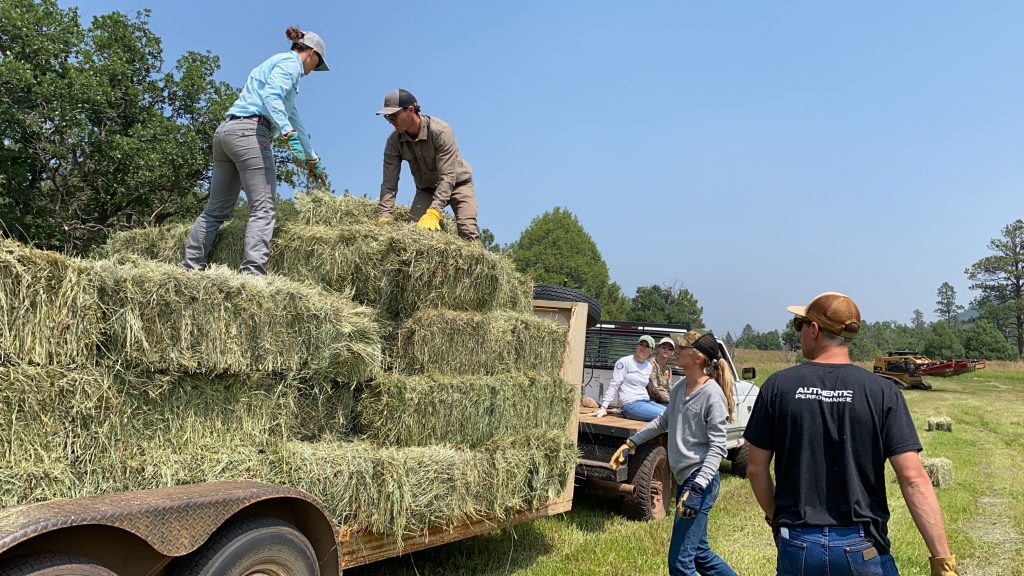
NR 539: Western Ranch Assessment and Planning
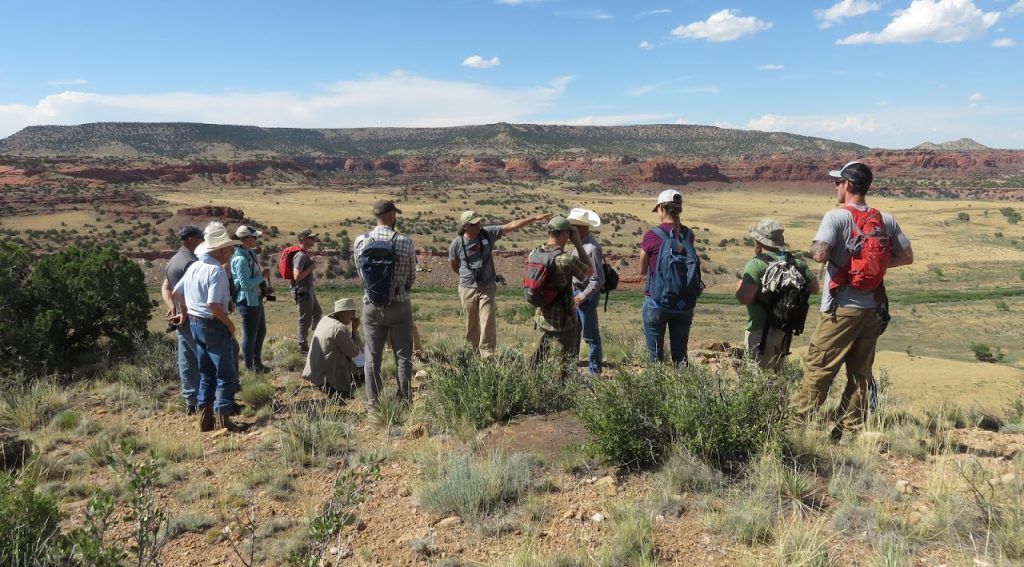
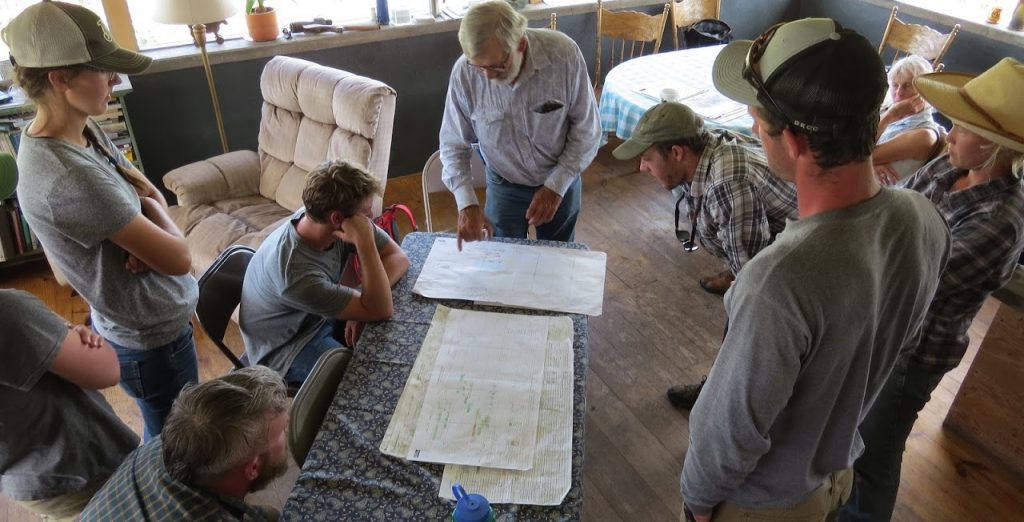
This course is an opportunity for students to apply their learning as they wrap up their degree. Students are paired with a partner ranch and visit the ranch to discuss and identify ranch priorities and goals through conversations with ranch owners, managers, and employees. Students conduct a targeted assessment of a resource or operation-of-interest. Students then research and consult stakeholders and experts about suggested management and corresponding monitoring approaches. Management and monitoring recommendations are written as a management plan, which is shared and presented with ranch owners and/or managers. This course requires students to apply knowledge from previous experiences and coursework, their network of practitioners, and research to real-world applications.
In this course, students learn to:
- Identify issues that may impact rangeland and forest ecosystem processes and productivity.
- Evaluate management priorities, opportunities, and challenges for ranch owners, and recommend management strategies that align with their long-term vision while demonstrating good stewardship of the land.
- Identify best practice management for a given social and ecological context from course readings and independent research.
- Apply foundational principles in range, forestry, water, wildlife, and conservation to justify recommended management strategies and planning.
- Write and present a ranch management plan highlighting challenges, recommendations and desired long-term outcomes.

